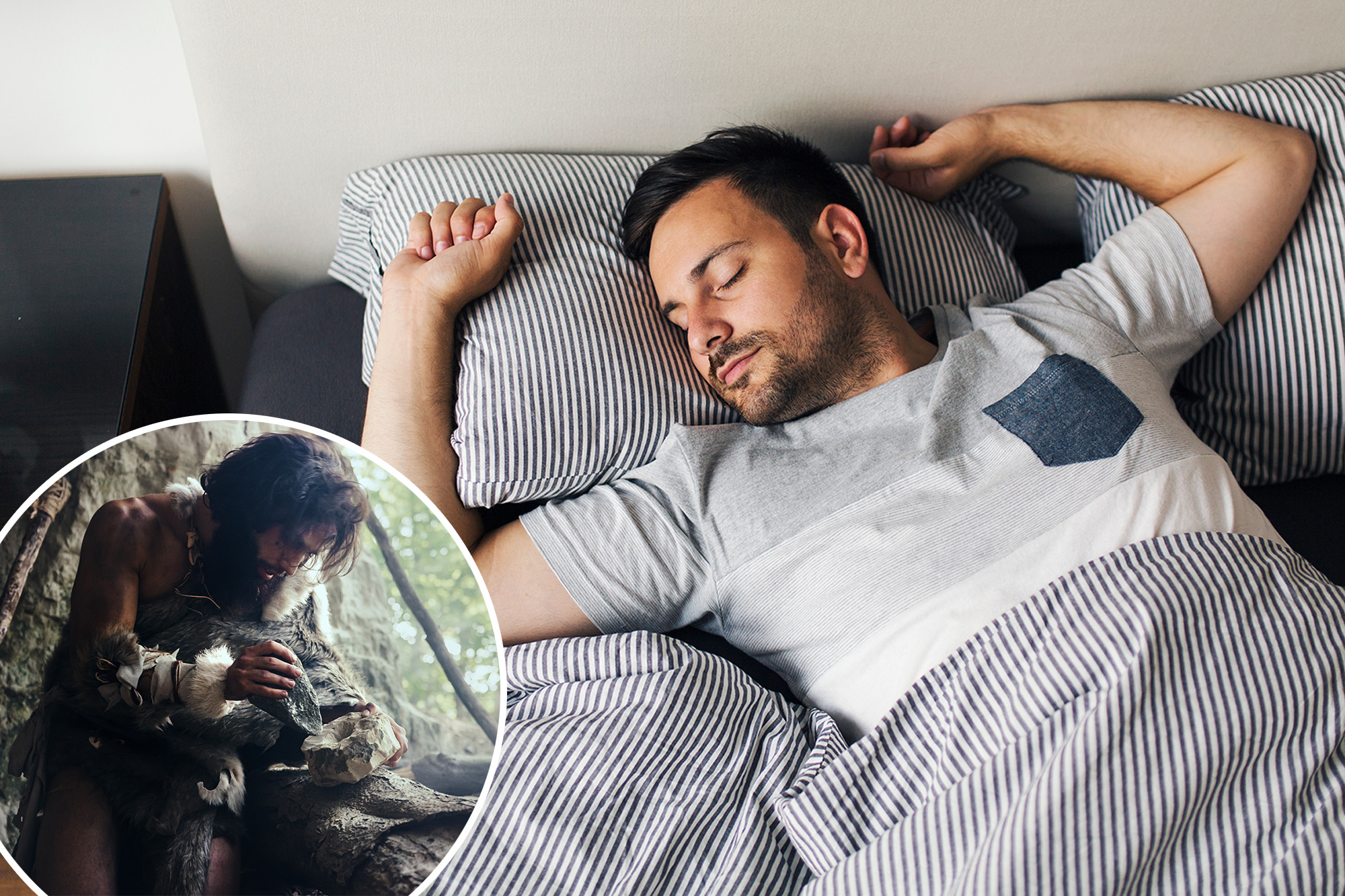
YABBA DABBA Snooze!
Sleep is essential for physical and mental health – it is essential for brain function, memory consolidation, tissue repair, immune system maintenance, concentration, hormone regulation and stress management.
Unfortunately, more than a third of American adults do not cease enough. Inappropriate sleep has been linked to cognitive problems, a weakened immune system, weight gain, depression and a higher risk of chronic diseases such as heart disease, diabetes and high blood pressure.
The Dutch sleeping scientist and the recovery of insomnia Merijn Van De Laar suggested that our ancestors could keep the key to sleeping like a rock.
“Sleep has hardly changed since the Paleolithic people were loudly kidnapped in their caves,” Van de laar notes in his new book, “How to Sleep Like a Cave.”
“While Saber’s teeth were their biggest concern in the night, today is the stress and social media that keep us awake, but the solutions are the same,” he added.
Van De Laar shared four suggestions to get a better night’s sleep in three weeks – the cave is not required.
Leave the eight-hour rule
Experts generally recommend adults to dive between seven and nine hours a night. Van De Laar said it is good to get six.
“The average length of subjective sleep is between under six hours and almost seven and a half hours,” he told the post. “Six hours is generally no longer associated with health problems when compared to sleep eight hours.”
Beware of potential risks to catch less Winks. A Penn 2019 study found that medium -aged adults with high blood pressure or diabetes who on average less than six hours a night had twice the risk of heart disease or stroke than those who would do longer.
People with a history of heart disease or stroke had three times the increased risk of cancer death if they had less than six hours a night.
Examine your attitude toward the lie awake at night
If you lie awake at night, don’t worry. Van De Laar said smart time is normal – it’s just a problem if you are anxious or anxious.
“We have forgotten to lie awake because, in industrialized places, we have faced higher sleep pressure because of the shorter bed time,” he said.
“In a more natural situation, where even the best sleep lies very awake (such as the Hadza tribe in Tanzani), the smart lie takes on a different and less problematic form.”
Discover your personal sleep needs
Van De Laar suggested to experiment with how long you spend in bed to find out what feels more restored.
“If you find yourself smart and anxious at night, create a shorter time in bed to increase sleep pressure,” he said. “The goal at first is not to sleep better, but to have shorter periods of awakening anxious. This is how you disrupt the negative circle of insomnia.”
To do this, appreciate how long you slept an average night last week and add half an hour. That’s how long you have to go to bed this week. Don’t go under five hours.
On the rolling side, you should consider extending the amount of time you spend in bed if you sleep quite constantly, but you feel like you are sleeping very little.
“If you continue to have soothing nights and work better during the day or even feel less sleepy, you know you’re on the right track,” he explained.
Respect your Circadian rhythm
Circadian rhythm is your body’s 24-hour o’clock-regulates sleep waking cycles, hormone release, appetite, digestion and body temperature. These natural processes are greatly affected by light and darkness.
“Spend the training class 6 in the morning if it doesn’t fit your natural circus rhythm,” advised Van De Laar. “Try to find out what is your biologically defined rhythm of the night, and try to follow it as much as possible.”
#ways #sleeping #cave #cure #insomnia #book
Image Source : nypost.com